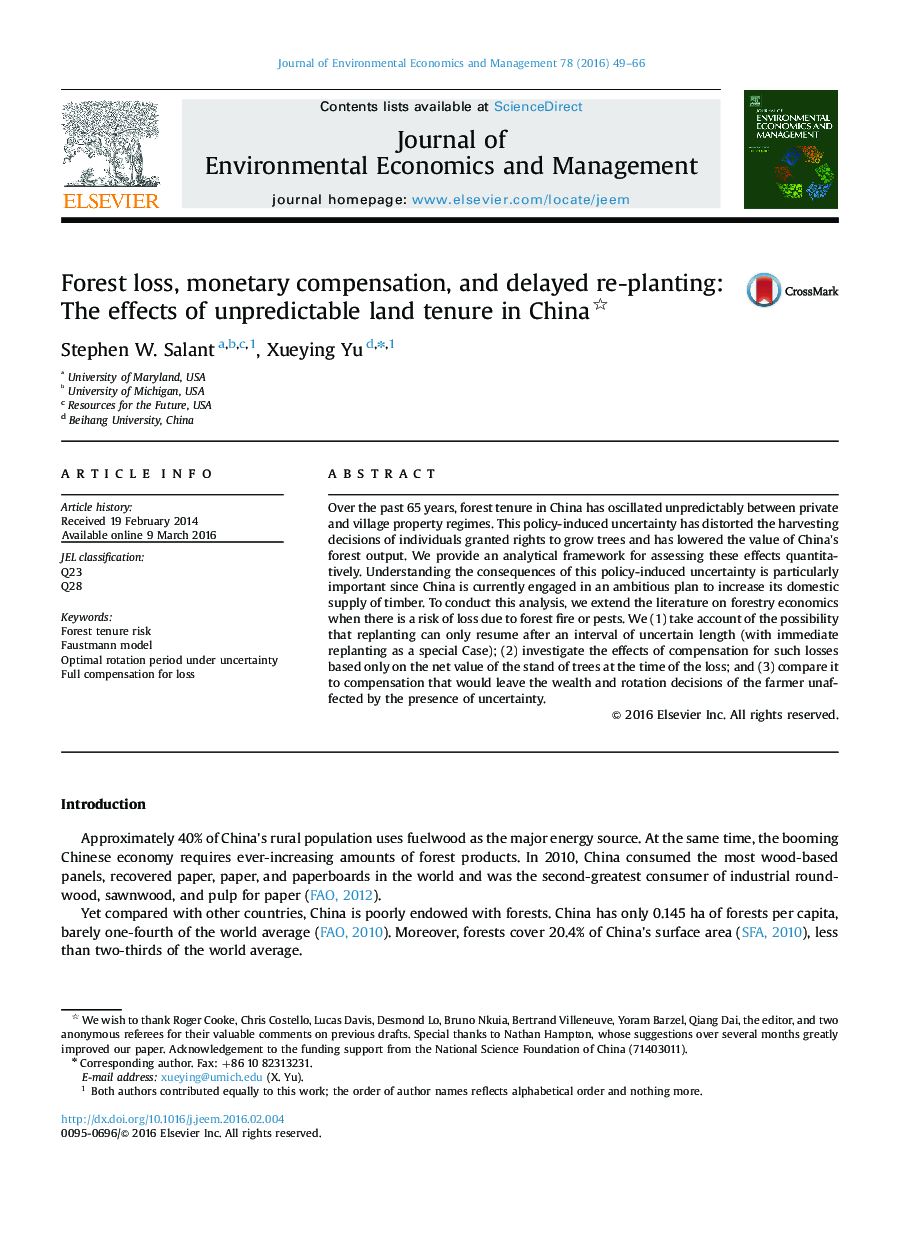| Article ID | Journal | Published Year | Pages | File Type |
|---|---|---|---|---|
| 958780 | Journal of Environmental Economics and Management | 2016 | 18 Pages |
Over the past 65 years, forest tenure in China has oscillated unpredictably between private and village property regimes. This policy-induced uncertainty has distorted the harvesting decisions of individuals granted rights to grow trees and has lowered the value of China׳s forest output. We provide an analytical framework for assessing these effects quantitatively. Understanding the consequences of this policy-induced uncertainty is particularly important since China is currently engaged in an ambitious plan to increase its domestic supply of timber. To conduct this analysis, we extend the literature on forestry economics when there is a risk of loss due to forest fire or pests. We (1) take account of the possibility that replanting can only resume after an interval of uncertain length (with immediate replanting as a special Case); (2) investigate the effects of compensation for such losses based only on the net value of the stand of trees at the time of the loss; and (3) compare it to compensation that would leave the wealth and rotation decisions of the farmer unaffected by the presence of uncertainty.
